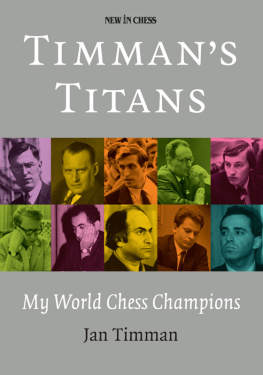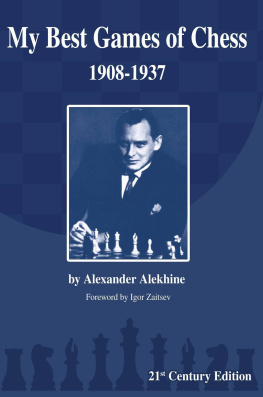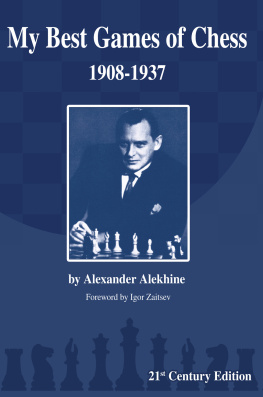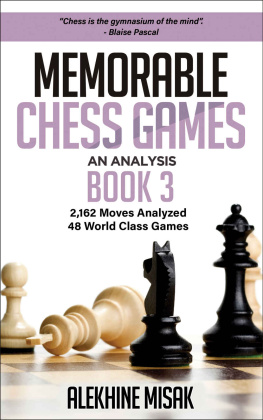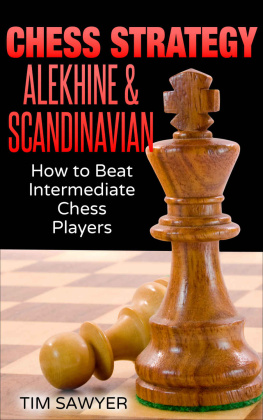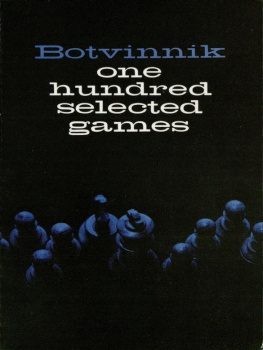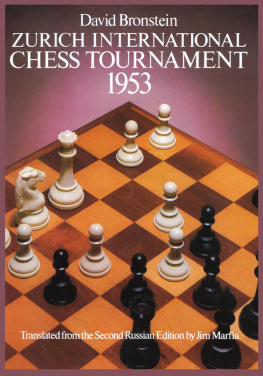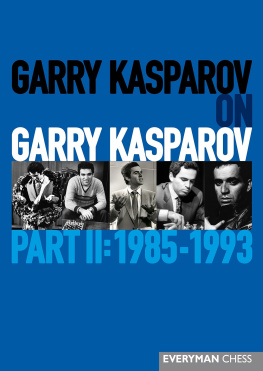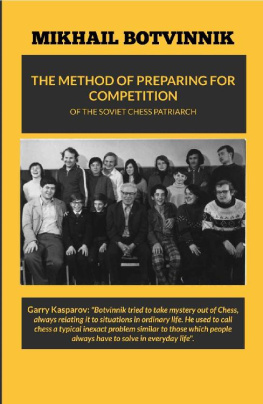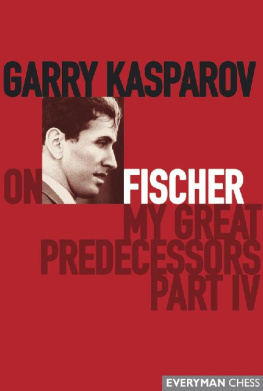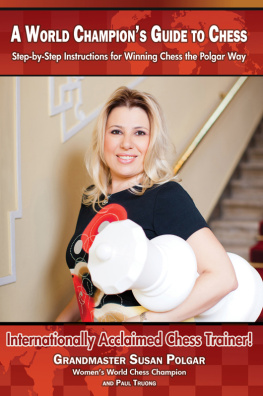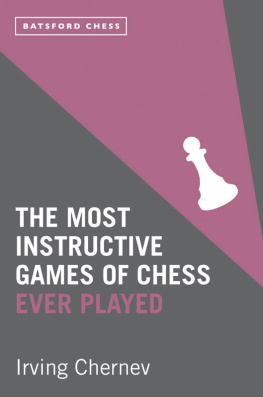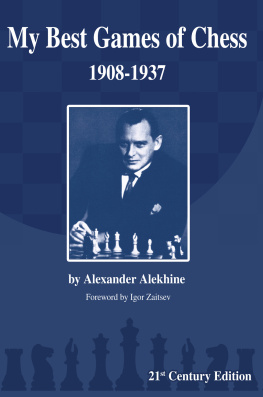Timmans Titans
Jan Timman
Timmans Titans
My World Chess Champions
New In Chess 2016
2016 New In Chess
Published by New In Chess, Alkmaar, The Netherlands
www.newinchess.com
All rights reserved. No part of this book may be reproduced, stored in a retrieval system or transmitted in any form or by any means, electronic, mechanical, photocopying, recording or otherwise, without the prior written permission from the publisher.
Photos in this book:
Alexander Alekhine, Max Euwe, Anatoly Karpov, Boris Spassky: courtesy Max Euwe Centre Amsterdam; Mikhail Botvinnik: courtesy 64; Bobby Fischer: courtesy Icelandic Chess Federation; Garry Kasparov, Tigran Petrosian, Vasily Smyslov: New In Chess Archive; Mikhail Tal: Turov Archive
Cover design:Volken Beck
Translation & supervision: Peter Boel
Proofreading: Joe Petrolito, Ren Olthof, Frank Erwich
Production: Anton Schermer
Have you found any errors in this book?
Please send your remarks to and implement them in a possible next edition.
ISBN: 978-90-5691-672-5
Foreword
The idea for this book has gradually grown over the years. I wrote the story The porcelain pieces in 2001. It was an account of a visit to Lisbon I had made one year earlier. The porcelain pieces I bought there in a shop had belonged to Alexander Alekhine, and that was the leitmotiv of the story. I wrote two portraits about Mikhail Tal and Mikhail Botwinnik for the Dutch literary chess magazine Matten in 2007. In 2011, the Dutch publisher De Bezige Bij published these stories, together with seven other portraits of chess players, including Boris Spassky, Bobby Fischer, Garry Kasparov and Magnus Carlsen, in one volume that received the simple title Schakers (Chess Players).
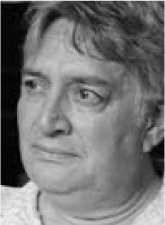
Two years later, Allard Hoogland and Dirk Jan ten Geuzendam asked me to write a book about World Champions but a comprehensive one: the chess-technical aspect had to be highlighted too. I agreed, but realized that this was going to be a gigantic job. On the other hand, writing about this would also be pleasant as it would take me back to those romantic times when chess wasnt yet dominated by the computer. After some thinking I decided to limit myself to those champions whose careers had been concluded. Kasparovs successor, Vladimir Kramnik, is still very active as a player, and the same goes for Viswanathan Anand, Veselin Topalov and, of course, Magnus Carlsen.
I decided to start the book with Alekhine. He was the only player I could never have known, as he died more than 5 years before I was born. Max Euwe I have known well, despite the age gap of half a century between us. Actually, this is the first time I have written about him, more than three decades after his death. Ive never played against him, and Ive never played against Botvinnik or Fischer either. Against the other World Champions, I played many hard-fought games, of which I have selected the most interesting ones here. Some I have annotated in full, from others I have given only fragments. I have corrected where necessary the old analyses from Schaakbulletin, the Dutch-language predecessor of New In Chess, and my book Selected Games. Also, I have discussed many different facets of the play of the champions. In doing this, I have strived to present as much information as possible that is little known to the larger chess audience.
Jan Timman,
May 2016.
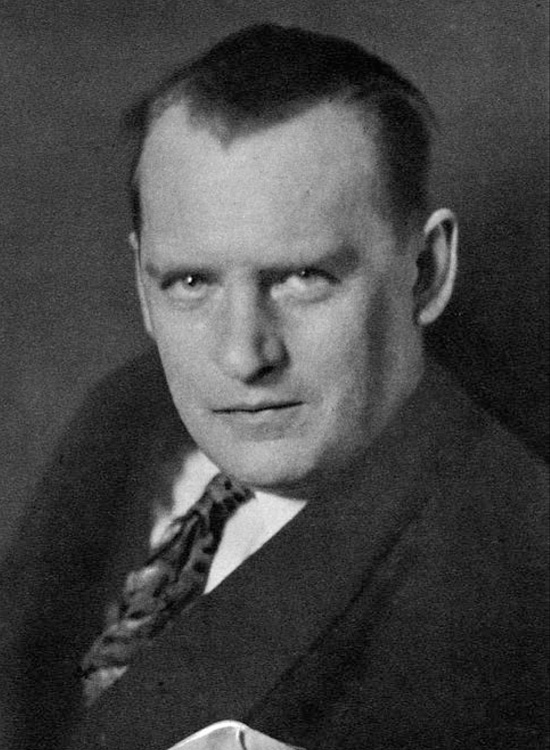
Alexander Alekhine
The first time I saw the Largo do Chiado was in winter. Light snow was whirling down, old trams were riding by, and steam rose from a stall where chestnuts were being roasted. A shock of recognition went through me, only it wasnt caused by the atmosphere but by the architecture. Or perhaps it was the combination of the two, but the architecture must have been overriding, for I must have seen old illustrated books on Lisbon already in my youth.
It was dj vu. For a long time I had been strolling uphill through the cold, through this quarter that had been blackened by a big fire.
There were many bookstores all around the square, there was a pleasant bustle, so this had to be the beating heart of the city. True to custom, I bought a pocket dictionary, Portuguese-English and vice-versa this time. It was late in the afternoon, and the square was already covered by a dark shade. I drank a glass of red wine in an old caf with a magnificent wall clock.
I had come to Lisbon to give a lecture. I had received a letter of invitation from Marinus Luyks, a Dutchman who had been living in Portugal for quite some time. It was a hand-written, three-page letter. He had no email, and not even a fax machine, and so he wrote this letter. Those written lines might have been enough for me to realize that time seemed to have been standing still in Lisbon. The letter had been written in the early summer of 2004. An annual chess festival had been organized in Lisbon for many years in late November and early December.
In the old ramshackle building where the festival took place, I held my discourse in the early evening of the day after my arrival. In the morning, I drank coffee in one of the cafeterias you often come across in Spanish cities as well. My lecture was titled The life of a chess player. Unconsciously, I must have been thinking of the novel Het leven op aarde (Life on Earth) by the Dutch writer J.J.Slauerhoff; anyway, this association didnt enter my mind until several months after I wrote the lecture.
The main characters in Slauerhoffs novels are loners. That was also how I often felt certainly at my arrival in Lisbon. The fados, the general atmosphere: loneliness forced itself upon me.
Of course I met people there. Juan Pereira was a philosopher in his mid-forties, balding and energetic. He had organized the lecture, and the day of the lecture was also his birthday.
During the lecture I told some anecdotes about Misha Tal, the World Champion from Riga, who had led an adventurous life just like Slauerhoff. Afterwards, more questions were asked about the writer than about the chess player. A large man, past sixty and long-haired, kept asking questions about Life on Earth, about which I had been talking. The man had lived a long part of his life in Macao, the former Portuguese colony where the novel started.
When question time was over, we went downstairs to the bar. Big balloons with Portuguese cognac were brought in, and calor gas burners were standing ready to warm them up. This was just a little too much for me. I left the bar.
Close to the large wooden door leading out of the building was a bookstall. I picked up an almost square hardcover book. On its green cover was written in gold letters: Schachgenie Aljechin, Mensch und Werk.
The authors were Hans Mller and A.Pawelczak. I knew Mller from his manual Z speelt Botwinnik (Botvinnik Teaches Chess), which I had studied with great devotion in my youth.
I opened the book and saw a photo of the participants at the Semmering tournament in 1926. That was how these pictures were made in the day. Most of the participants were standing. A smaller group was sitting before them in armchairs, with a small table standing in between them. On the far right was Akiba Rubinstein; his face made a tortured, tired impression. Aaron Nimzowitsch could be seen on the far left, aggrieved and grudging. At least, that was my impression. In the middle was Siegbert Tarrasch, eminent and unassailable, in a three-piece costume. To his left sat Alexander Alekhine. His armchair was comfortable, but he didnt look relaxed at all. You could see his characteristic agitated nervousness in his eyes. He looked as if he wanted to sit down at the board as soon as possible.

